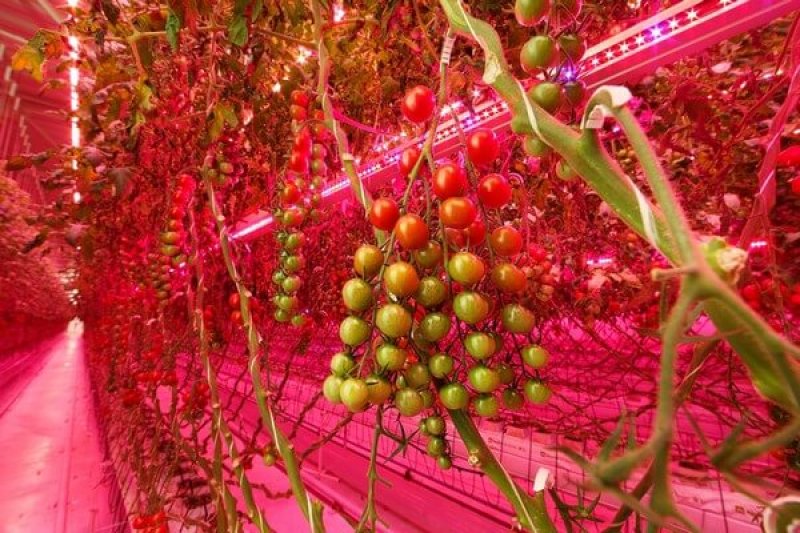What crops come to mind when you think of vertical farm production? Leafy greens, microgreens and herbs are likely the most common answer. How about tomatoes?
University of California researchers Robert Jinkerson and Martha Orozco-Cárdenas are using CRISPR-Cas9 gene-editing technology to develop short tomato plants that have the potential to be grown in vertical farms and on the International Space Station.
…
While Jinkerson’s current research is focused on tomatoes he said there is the potential to apply the gene-editing technology being developed to other vertical farm crops.
“We are going to start with other Solanaceae crops, including peppers, eggplant and potatoes,” he said.
Part of the research on the tomatoes is being funded by NASA and will be used to conduct a seed-to-seed experiment in space.
“The goal is to grow tomato plants on the International Space Station to fruit and have the astronauts harvest the seed,” Jinkerson said. “The astronauts will then take the seed and grow them for the next crop to have them fruit again. This process is essential in order to have a sustainable crop system for food production.”































